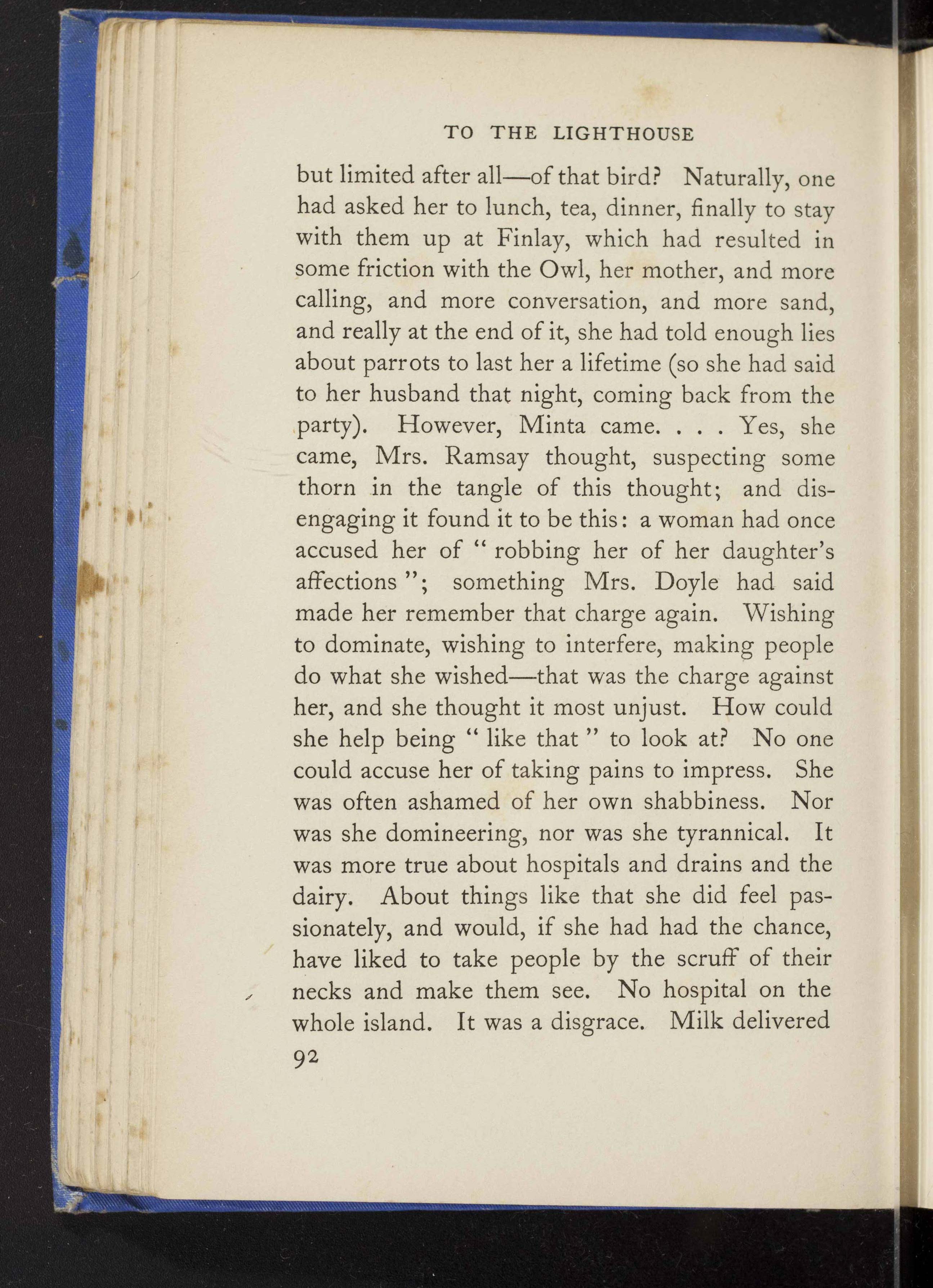
TO THE LIGHTHOUSEbut limited after all—of that bird? Naturally, onehad asked her to lunch, tea, dinner, finally to staywith them up at Finlay, which had resulted insome friction with the Owl, her mother, and morecalling, and more conversation, and more sand,and really at the end of it, she had told enough liesabout parrots to last her a lifetime (so she had saidto her husband that night, coming back from theparty). However, Minta came. . . . Yes, shecame, Mrs. Ramsay thought, suspecting somethorn in the tangle of this thought; and dis-engaging it found it to be this: a woman had onceaccused her of “robbing her of her daughter’saffections"; something Mrs. Doyle had saidmade her remember that charge again. Wishingto dominate, wishing to interfere, making peopledo what she wished—that was the charge againsther, and she thought it most unjust. How couldshe help being “like that" to look at? No onecould accuse her of taking pains to impress. Shewas often ashamed of her own shabbiness. Norwas she domineering, nor was she tyrannical. Itwas more true about hospitals and drains and thedairy. About things like that she did feel pas-sionately, and would, if she had had the chance,have liked to take people by the scruff of theirnecks and make them see. No hospital on thewhole island. It was a disgrace. Milk delivered92









